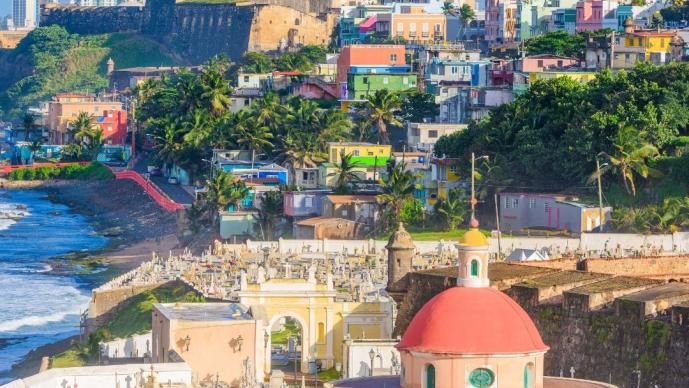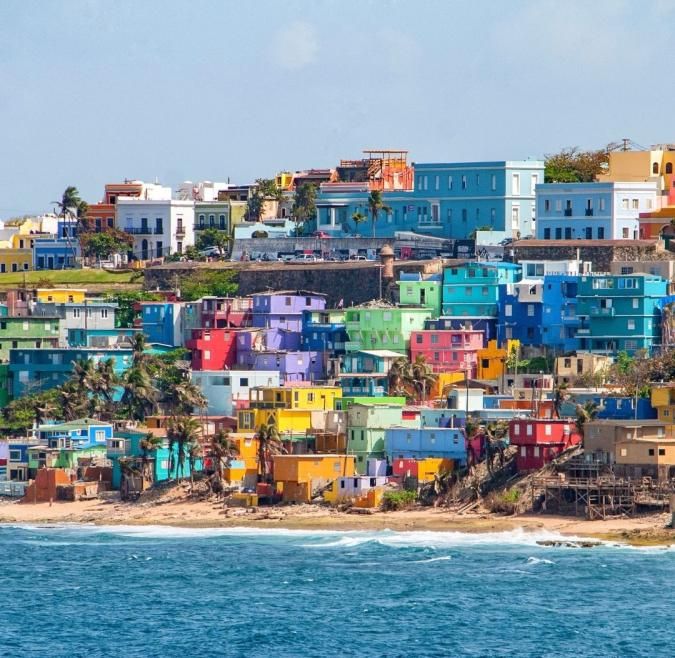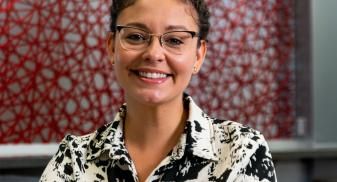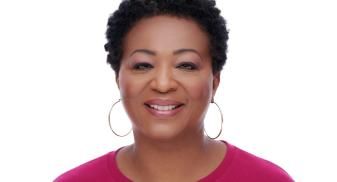Summer: Rutgers- Health Communication & Health Inequalities Across the Health Professions in Puerto Rico and the U.S.A.
The Program
How do communication and culture impact the health of communities?
This program provides an opportunity for a diverse group of healthcare, public health and health communication students to examine health inequities with an emphasis on communication. The course will explore health inequities and health communication among marginalized Puerto Rican communities that have been impacted by climate change, weather-related disasters, colonialism, and other structural issues impacting health inequities. We will examine communication as a health-related outcome, as an important social process shaping our health, and through the lens of digital media.
The course will begin via Canvas and ZOOM on May 31st, two weeks before students and instructors from both universities and countries meet in person on the island of Puerto Rico.

Program Locations

Puerto Rico
San Juan
Rutgers and the University of Puerto Rico students and faculty will work in Puerto Rico. Our main base in Puerto Rico will be in San Juan, where the Medical Sciences campus is located. Students from both countries will participate in program sessions at UPR’s School of Public Health and visit communities across Puerto Rico. Activities to aid students’ immersion in the local culture in San Juan and around Puerto Rico are planned.
Academics
Research from across the globe speaks to the many determinants of health disparities that disproportionately affect a range of populations, including women, individuals with low socioeconomic status, ethnic and racial minorities, immigrants and refugees, people with disabilities, and individuals who identify as lesbian, gay, bisexual, transgender, queer or intersex (LGBTQI). Health inequalities—that is, systematic and avoidable inequalities in health outcomes—can be attributed to a wide variety of factors, including, but not limited to, discrimination. This is true in countries across the world, as is the fact that research has documented disparities across a vast number of health outcomes (e.g., healthcare access, physical health outcomes, and mental health outcomes). Health inequities are challenging but not intractable problems. There are many examples of policy, educational, and other types of interventions designed to eliminate them and their deleterious effects on individuals, groups, communities, and populations.
The program adopts a socio-ecological approach to health; that is to say, the class will systematically explore how all the contexts and environments in which we live our lives influence our health, independently and in interaction. This means examining not only how individuals’ characteristics (e.g., age, ethno-racial background, education) play a role in health, but also how interpersonal relationships, the organizations we interact with and are part of, as well as the communities and the legal/policy environments that we live in impact our health.
The emphasis will be on communication and examining health inequities in various health professional contexts. We will examine communication as a health-related outcome, as an important social process through which the environments we traverse in our everyday lives shape our health (e.g., how media impacts our health behaviors), and through a technological lens as new and emerging digital technologies are transforming health communication from and between health professionals and communities. As disparities disproportionately affect various populations, the program will emphasize inequalities that affect colonized populations, racial and ethnic minorities, immigrants, and people living with the impact of climate change, food insecurity, low incomes, among others, both in Puerto Rico and the mainland, U.S.A.
To put knowledge developed through the program to work, students will work in small teams to identify public health challenges in local communities and develop proposals for how to solve them. Teams will work closely with faculty both in the U.S.A. and Puerto Rico.
Program learning objectives:
• Describe central models and concepts related to health inequities and why they matter.
• Explain how health communication can support and aid in the maintenance of health behavior change for individuals and communities.
• Describe how new and emerging digital technologies are reshaping health professional and health communication practices.
• Articulate commonly used methodological approaches to identify health inequities and their causes, and methods for fighting and eliminating such inequities.
• Apply conceptual tools to analyze and explain how culture is related to health, health inequities, and health communication across health professional contexts.
Housing and Meals
Students will share double rooms in hotel. Some meals (breakfast and some lunches) will be included. All other meals not included.
Financial Information
Program Costs
| NJ Resident | Non NJ Resident | |
|---|---|---|
| Non Credit | $2,380 | $2,380 |
| 1 Credit UG | $2,420 | $2,530 |
Program Cost includes:
- Tuition (for 1 UG credit only)
- Housing
- Some meals
- Excursions
- Administrative Fees
- Emergency Medical Access Abroad
Out-of-Pocket Costs
| Flight | $700 |
| Meals | $350 |
| Personal Expenses | $200 |
| Total | $1,250.00 |
Out-of-Pocket Cost includes:
The above costs are estimations and represent the known out-of-pocket costs students encounter during their time abroad.
Some of these expenses will be paid for prior to going abroad, such as an airline ticket, while some of these expenses, such as meals and personal expenses, will be paid in-country as part of your daily expenses. As you plan, you will need to budget these costs and spend wisely throughout your time abroad.


